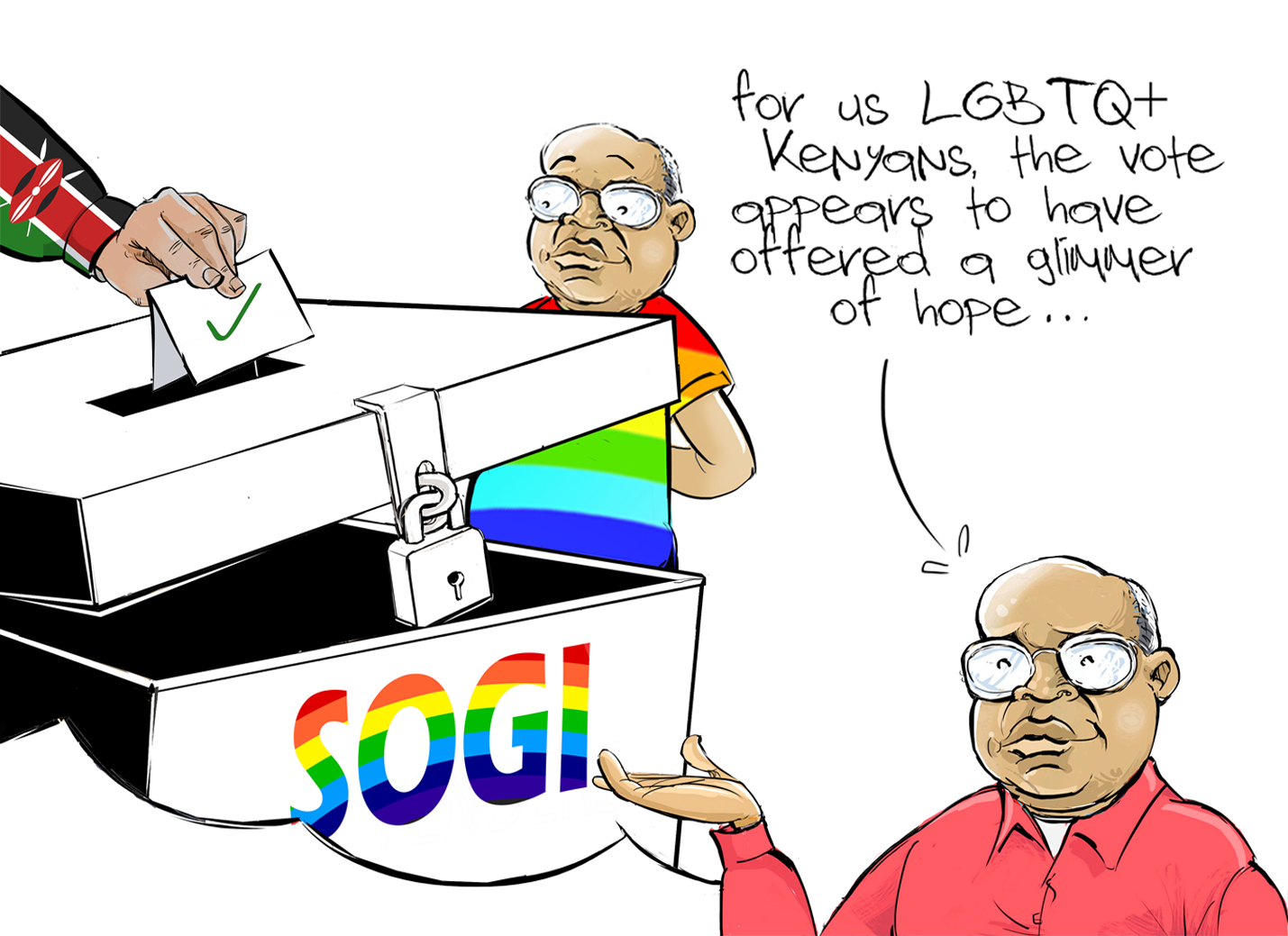
In the grand diplomatic talking shop that is the United Nations, every so often, the Human Rights Council throws a slightly uncomfortable question onto the table and watches what happens.
By the time you read this, it will have been almost a couple of weeks since the historic vote in favour of renewing the mandate of the independent expert on protection against violence and discrimination.
The role is based on the ever-controversial Sexual Orientation and Gender Identity (Sogi) resolution.
The real point of action around the vote is the question about whether LGBTQ+ people should be recognised as human beings deserving of rights and protection? You might think this was the sort of thing everyone would agree on, until you actually ask.
We all remember President Robert Gabriel Mugabe’s rants about members of the Rainbow Community being “worse than dogs and pigs”.
As the roll call began, seasoned watchers of African diplomacy leaned back in their chairs, ready to tick off the usual suspects: South Africa with a firm yes, Nigeria with a resounding no, Uganda probably already drafting a rebuttal before the question is finished. Then, something amazing and curious happened. Kenya voted in favour. Yes, our Kenya, where same-sex relationships are still criminalised. The same Kenya where so many people regularly invoke “African culture” as a kind of divine firewall against anything rainbow-coloured. This very same Kenya where LGBTQ+ activists still face threats, arrests and the occasional sermon declaring them agents of Western confusion.
You could almost hear the diplomatic jaws dropping onto the floor across the continent.
Why did Kenya say yes? Theories abound. Some wild optimists suggest that the vote was influenced by a last-minute whisper from the Foreign Ministry's more progressive wing.
Frankly, if there even existed such a wing, I’d be shocked. Knowing my country as I do, it is more likely that someone simply pressed the wrong button.
Nevertheless, whatever the reason, Kenya's unexpected thumbs-up stirred the pot. Lest we forget, Sogi votes at the UN are often less about actual rights and more about symbolic alignment.
Voting for is usually interpreted as being pro-West, pro-human rights, or, depending on your audience, pro-moral decay. Voting against sends a message that you're defending national culture, spiritual sovereignty and, apparently, the entire fabric of society from collapse.
To be honest, most African nations tend to tiptoe around the issue. Abstention is the safe zone, the political equivalent of awkwardly fiddling with your spectacles and hoping no one asks your opinion during a staff meeting. But Kenya stepped off the fence and into the diplomatic spotlight. Cue mixed reactions.
Local and international rights groups were pleasantly stunned, raising cautious glasses of white win in Nairobi’s direction.
Meanwhile, on the ground, things have been rather more complicated. As would have been expected, religious leaders are fuming. And somewhere, one imagines, a government spokesperson, sighed deeply and began preparing an “explanation” that involved technical language and reassurances that nothing had really changed.
Meanwhile, social media was occupied with more important matters, so the expected meltdown seems to have been muted.
Yet the vote matters. UN resolutions, even the non-binding ones, have weight. They help set the tone for what is considered acceptable or reprehensible in global discourse. When Kenya, a regional powerhouse with a foot in both East Africa and the global economy, votes in favour of Sogi protections, it sends a ripple. Maybe even a wave.
For us LGBTQ+ Kenyans, the vote appears to have offered a glimmer of hope. For our detractors, it has sparked a new round of cultural outrage. Continentally, the vote signalled that the African narrative on LGBTQ+ rights is not as uniform, or as predictable, as many like to believe.
So, what does Kenya’s vote tell us? I think it tells us the Sogi debate in Africa is shifting, however subtly. That human rights, cultural identity, geopolitics and domestic image all mix together in one big pot, which occasionally, someone stirs it the “wrong” way, only to find that the world is watching, and maybe, just maybe, cheering them on.
Sometimes, the most surprising guests bring the best conversation to the table.













